Army veteran Brock proudly served his country in tours of Afghanistan, Iraq and Timor, all within the space of five years. Upon his return to civilian life, Brock noticed his mental health was on a downhill slide.
“The decline happened slowly, until one day I suddenly fell off the cliff completely. I went to the emergency department and was admitted to the mental health unit at the PA. I started working with Paul from RFQ and he was amazing, he really helped me a lot.”
Brock then transferred to a private hospital, where he discovered a coping tool that would become a big part of his life – art.
“I remember in 8th grade, the teacher basically telling me I was completely failing at art – I thought ‘I just don’t understand this art stuff’. But when I reconnected with it as an adult, and I wasn’t being judged or marked on it, I found it was really therapeutic.”
“While it’s nice to get a good outcome, I find that the process of creating is what really matters. Even if you don’t produce the best piece of work, it’s a meditative and mindful process. I’ve always loved the feeling of the paint going onto the paper.”
Brock finds that keeping busy and focused on tasks he finds valuable is beneficial to his recovery. He has recently started volunteering in the Wounded Heroes’ op shop and veterans’ lounge, connecting with other people who have been impacted by war.
“Volunteering keeps me going and gives me a focus. I’m looking into the possibility of helping facilitate a weekly art group too, which I would love to do. Personally, art has been a major contributing factor behind my improvement and I would love the opportunity to help others heal through art.”
 |
| "Inner Critic" by Brockilli on display at the 2022 Recovered Futures Art Exhibition. |
Brock says displaying and selling art in the 2021 Recovered Futures Art Exhibition, his first ever exhibition, gave him confidence in his abilities as an artist.
“I was literally there when the red dot went up on my artwork – it felt so good! I guess you don’t know if people are just being nice when they say your art is good. But when you sell it – well, that’s a litmus test that can’t be failed! Being involved in the exhibition was a great experience.”
For someone in a hyper-masculine field, where physicality and competitiveness are often valued highly, Brock says getting into art has allowed him to tap into a different side of himself.
“Switching to something creative and allowing myself to be vulnerable in sharing my art with the world has been a great thing for me. I still get certain anxieties about sharing my art, but I like to leave it open to interpretation so people can find their own meaning in it and hopefully get something out of it.”
Reflecting on those tough early days when he was finding his way and learning to rebuild his life, Brock says the thing he’ll always remember is those who simply showed up.
“You don’t need people to say the right thing, because honestly there’s not always a ‘right thing’ to say in these situations. The thing that matters most is showing up and making it clear that you still care about that person and will be there for them. That normalises things and helps people move on.”

